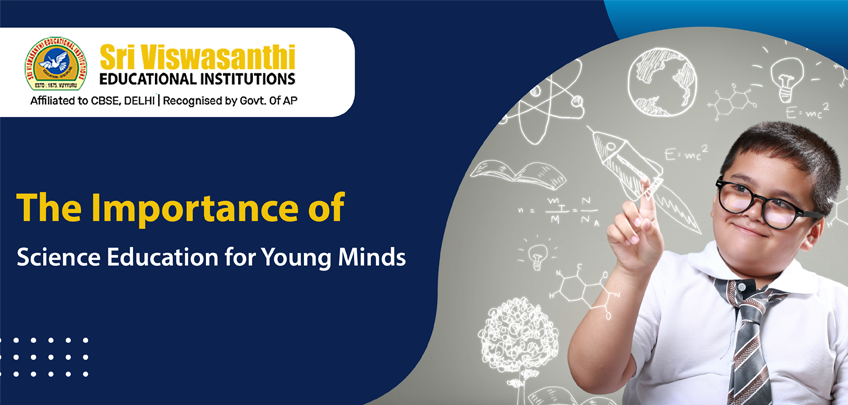

In a world where science and technology shape nearly every facet of our lives, nurturing young minds through science education has never been more critical.
The process of learning about science not only equips children with essential skills but also ignites their curiosity, instills critical thinking, and prepares them for the challenges of a rapidly evolving world.
Science is not just a subject; it's a way of thinking, questioning, and understanding the world around us. From unraveling the mysteries of the universe to discovering cures for diseases, science forms the foundation of progress.
As such, it is imperative that children are exposed to science education from a young age. Here, we delve into the myriad reasons why science education matters.
Science education fosters curiosity in young minds. Children are naturally inquisitive, and science provides a structured way for them to explore and satisfy their curiosity. It encourages them to ask questions, seek answers, and develop inquiry skills.
For example: Children may wonder why the sky is blue or how plants grow. Science provides the tools to investigate and comprehend these phenomena, nurturing a lifelong habit of questioning.
Science education is not just about memorizing facts; it's about developing critical thinking and problem-solving skills. Students learn to analyze, evaluate, and draw conclusions based on evidence. This fosters a mindset that is not easily swayed by misinformation or pseudoscience.
Consider the following: When students conduct experiments or analyze data, they learn to think critically and make decisions based on the evidence at hand. This skill is valuable in all areas of life.
In a world increasingly reliant on technology and innovation, a solid foundation in science opens up a world of career opportunities. Science education can inspire and prepare young minds for careers in fields such as engineering, medicine, computer science, and environmental science.
Science education plays a vital role in fostering environmental awareness. In an era where environmental issues are of global concern, it is crucial for young minds to understand the ecological systems, conservation, and sustainability.
Through lessons in biology, ecology, and environmental science, students learn about the delicate balance of ecosystems and the importance of protecting our planet.
Science education enhances a range of life skills. These include data analysis, research skills, communication, and teamwork. Consider these practical applications:
Science education encourages a growth mindset. It teaches children that it's okay to make mistakes, as learning from them is a part of the scientific process. This mindset of resilience and perseverance is invaluable in all aspects of life.
When children face challenges in science experiments or projects, they learn that setbacks are opportunities for growth and improvement.
Science education for young minds is not merely about academic success; it's about preparing the next generation to thrive in a world defined by scientific and technological advances. It cultivates curiosity, critical thinking, and problem-solving skills, all of which are indispensable in the modern world.
Furthermore, it nurtures a sense of responsibility towards the environment and equips students with life skills that will serve them well in any chosen path. Science education is not a luxury; it's a necessity for a brighter, more informed, and more innovative future. By investing in the scientific education of our youth, we invest in the future of our society.